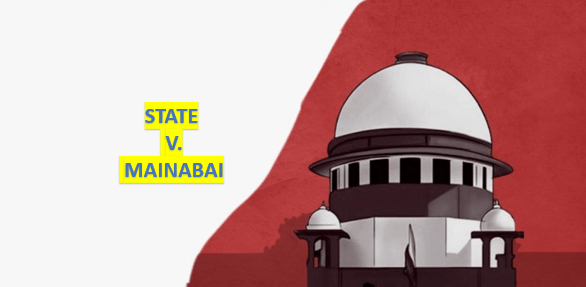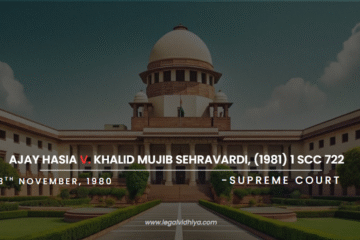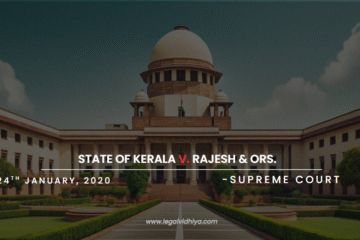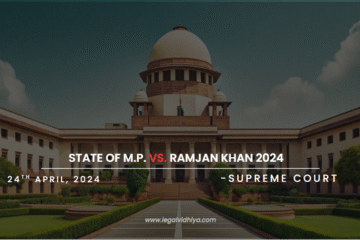
STATE V. MAINABAI
| Appellant | State |
| Respondent | Mainabai |
| Equivalent Citation | AIR 1962 Bom 202, (1962) 64 BOMLR 127, ILR 1962 Bom 134 |
| Date Of Judgement | 28th September 1961 |
| Bench | Patel & Chandrachud |
| Court | Bombay High Court |
FACTS OF THE CASE:-
- The accused managed a brothel with the help of two other women and lived on the earnings of the other women’s prostitution.
- The state appealed against the respondent for the offence of keeping a brothel or allowing the premise to be used as a brothel and also for living on the earnings of prostitution. These offences are mentioned in Section 3 and 4 of Traffic in women girls act, 1956.
- The case was presented before Judicial Magistrate First class, where the accused pleaded guilty in front of the court on all the charges against her. So the court accepted the pleading and sentenced her imprisonment of 6 months with a fine of Rs. 10 for each offence.
- After this the accused appealed in front of the session court about her conviction being illegal.
- The accused mentioned in the appeal that the investigating officer who did the investigation of the case did not have any authority hence the conviction was invalid.
- The state then appealed before the additional session judge against the acquittal of the respondent.
- After going through the facts the Additional Session Judge acquitted the accused.
- Then the case was taken to the high court by the state for justice and correct interpretation of the case.
ISSUE OF THE CASE:-
- Does the court have the jurisdiction of the case when the investigation officer who submits the report has no jurisdiction?
- Was the appeal of the accused to the Additional Session Judge valid?
APPELLANT’S CONTENTION:-
- The appellant stated that if the charge sheet filed by the police is of bad quality it does not mean that the magistrate cannot precede with the case.
- They referred to the case of H.N. Rishbud v. State of Delhi where the court stated that if there is any defect in the investigation that is not compulsory to affect the cognizance of the court. The police report is the material from which the court takes cognizance but it does not mean that any defect in it will make it completely invalid.
- The cognizance of such reports will be valid in the court of law until there is a miscarriage of justice is done.
- Here in this case the accused herself has accepted all the charges against her.
RESPONDENT’S CONTENTION:-
- The respondent referred to the case of Delhi Administration v. Ram Singh where the accused raised the obligation that the investigation done by the sub-inspector of police won’t be valid, the magistrate rule out the charge sheet and also mentioned that special officer was competent to investigation
- The respondents representative stated that the judicial magistrate first class had no jurisdiction of the case
- There are certain power of the Magistrate mentioned in the Immoral Traffic (prevention) Act, 1956 which are:-
- The magistrate can instruct the special police officer to enter the brothel and remove the girls involved in prostitution
- The girl or women who are carrying prostitution can write an application to the magistrate for providing a protective home.
- The magistrate can order the removal of women who he suspects to be carrying prostitution.
- According to the Immoral Traffic (prevention) Act, 1956 the ‘magistrate’ includes district magistrate, a sub-divisional magistrate, a presidency magistrate or a magistrate of first class only when authorised by the government.
- The respondent defence completely relied on section 22 of the Immoral Traffic (prevention) Act, 1956
JUDGEMENT OF THE CASE:-
After hearing both the sides of the case it was held that as per section 2(c) definition of Magistrate who will have the jurisdiction of the case will decide, this statement means that a particular court of a particular jurisdiction can try the case. Hence the judicial magistrate first class had the jurisdiction.
Due to which the order of acquittal passed by the Additional Session judge was quashed and the sentence of conviction by the Judicial Magistrate First Class was restored with the fine amount. Then the arrest warrant was issued against the accused.
written by Amrita Priyadarshini intern under legal vidhiya




0 Comments